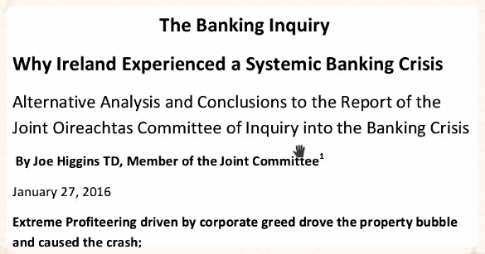Original article March, 2015
The Minister for Finance in Ireland, Michael Noonan, sold his shares in funds that track European and US stocks and diversified his portfolio including allocating some of his personal wealth into a gold exchange traded fund (ETF) in 2014.
Noonan sold out of his positions in the Lyxor Eurostoxx 50 ETF and SPDR DJIA ETF in 2014 and opted to invest in the SPDR gold shares ETF and Portuguese government bonds. He maintained his holdings in SPDR KBW Banks ETF, Ishares FTSE 100 ETF, Market Vectors Agri Business ETF, ETFS Agricultural Commodities ETF.
The information was published last week in the Register of Members Interests, in which members of Oireachtas – the Irish Parliament – must declare financial interests valued at over €13,000.
The changes to the Minister’s portfolio were highlighted by Ireland’s Sunday Independent yesterday, who described Noonan as “bearish” and interpreted the move as a “hedge against euro deflation”.
The piece acknowledged that gold is a safe haven – the “traditional hedge against tough times” and that “gold is an asset that has outperformed in times of both inflation and deflation.”
Noonan is believed to be quite a shrewd investor. The Sunday Independent reported that
“Noonan’s personal investments give an insight into his thinking and his views on the risk and opportunities facing the global and European economies and markets. He has a track record stretching back decades of canny private investments.”
The news is of interest given Noonan’s status within the Eurogroup of Finance Ministers, the Council of the European Union and the Ecofin. The Economic and Financial Affairs Council (Ecofin), is composed of the Economics and Finance Ministers of the Member States, generally meets once a month under the chair of the rotating EU Presidency.
Noonan is an EU economic insider and would have access to good information with regards to financial and economic developments in Europe.
Noonan represents Ireland at these meetings and chaired the Council during the first half of 2013. He is committed to the European political project. The political opposition and an angry public have accused him of putting the interests of EU banks and political elites over those of Irish society.
Given Noonan is close to EU elites, it is interesting that he chose to sell his European stocks and his allocation to Eurostoxx. Was the decision made prior to the ECB mooting the possibility of QE? If so it would suggest that Noonan may have been concerned about deflation. And yet the ECB never considered factoring the potential for deflation into its stress tests for banks.
Or was the decision made with knowledge of the ECB’s intention? If this were so it would indicate a lack of faith by a European finance minister in the ability of the ECB to achieve its stated objectives, given that QE should raise European stock markets.
Unfortunately, the Register of Members Interests does not detail the timeline of investments or their relative value so it is difficult to speculate whether the minister dumped his stock market investments prior to buying the gold ETF.
Noonan also bought Portugal 4.35% October 2017 government bonds. This either suggests that he has more confidence in the economic outlook for Portugal than for Ireland or more likely it is a form of diversification.
He continues to hold SPDR KBW US Banks ETF – which tracks US banks, iShares FTSE 100 ETF, Market Vectors Agribusiness ETF and ETFS Agricultural Commodities ETF.
Whatever the motivation of a European finance minister to buy into a gold ETF – which, incidentally, is not the same as owning physical gold as it carries significant counterparty risk – it represents a significant shift in attitude toward gold.
It also demonstrates that the recovery narrative is not one that the Minister appears to have much faith in. Noonan is prudently hedging his bets in this regard.
Max Keiser talks about Finance minister Michael Noonan and his ridiculous and illegal stance regarding Irish Tax Payer owned banks.






